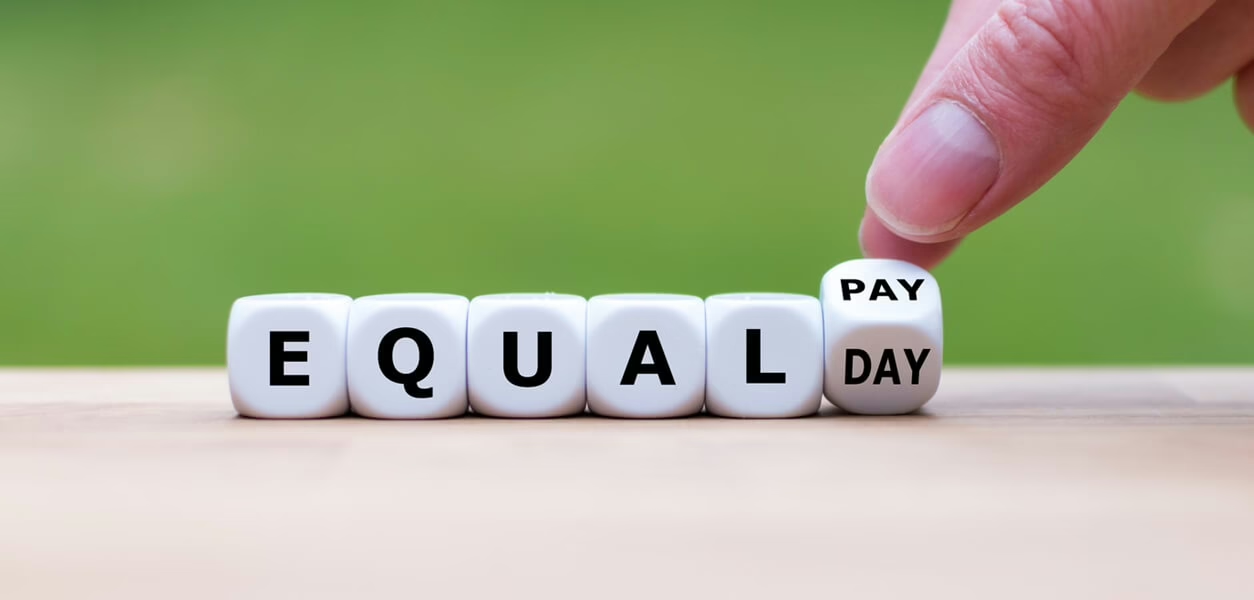
Last week we revealed a little known fact about the Age Pension – and that is, how very unfair the asset test rules are for renters and single renters in particular. We had a lot of media attention following the publication of this Age Pension anomaly. Our team has also had a lot of feedback on how this works. We’ve read your comments and had discussions about whether this inequity needs urgent attention.
Our conclusion is that yes, the Age Pension rules do need to be altered – urgently – to ensure that all older Australians who apply for the Age Pension are treated equitably. Here’s a brief recap on this issue.
The Age Pension is based upon a two-part means test which incorporates the income test and the assets test. There are limits on the amount of assets you may hold and income you can receive before a full Age Pension entitlement becomes a part Age Pension or no pension at all.
The key issue is that some assets are treated differently under the different tests as follows:
- Your home: It is exempt from the assets test and no deeming applies
- Personal assets and non financial investments: These are assessed under the assets test but no deeming applies
- Financial assets such as bank accounts, shares and super: They are included in both the assets test and income test – due to income being deemed. It seems a bit like double dipping to me.
The double dipping on financial assets could inadvertently discourage people from investing in income producing assets. This would be a very poor outcome for many people and not what the policy, or the threshold, is intended to achieve. There is a relatively simple fix to this.
Exempt all assets under the lower asset threshold from both the asset test and also from being deemed for the income test.
This would mean that renters in particular would get the full advantage of their higher threshold, even when they hold financial assets.
I’ve focussed on renters in the above point as they in theory enjoy a higher asset threshold but can have this benefit completely negated if they hold financial assets. They are not the only ones impacted by the various anomalies in the system though.
We wrote last week about a number of suggestions from the team at Retirement Essentials to improve the system better. You can check out our suggestions in our budget wishlist.
Your feedback
But this debate is bigger than our insights and suggestions. Here’s a roundup of your comments from last week. There is a strong sentiment from homeowners that they, too, are finding things expensive as the costs of maintaining a home continue to escalate.
Graham says that government should look at a retiree’s spending history before assessing their eligibility and pension level:
‘If I decide to drink, gamble, smoke or go overseas for annual holidays and not look towards purchasing a house for my long-term needs, should I be entitled to a more generous pension?
Maybe the Govt rules should look at the spending history of individuals rather than just the current circumstances?’
Frances believes that there is a fundamental choice to be made:
‘I am a self-funded retiree and am definitely NOT jealous that I am not getting a government handout. I am much happier living on my own money and not being accountable especially when it comes to gifting or the deeming rate.
But to get to where I am I did have to do without to put extra money into my super. I also didn’t drink, gamble or smoke. I made the conscious decision that either I lived for today or saved for tomorrow and chose the latter. This was partly due to having seen people struggling financially and not wanting to do the same.’
Peter describes maintaining a home in retirement as hardly a walk in the park:
‘It’s obvious the pension compensation isn’t up to the task. But the consequences for those still paying mortgages while living on the Age Pension isn’t a walk in the park either. And further one can’t just walk away like I believe one can in the USA. Yes many ‘home owners’ might be in a position to be able to sell and possibly move to another place but every move is facing similar price rises. All home ‘owners’ (and I use that term lightly) are faced with increased local and state government taxes (Rates) coupled with increasing house (building) insurances. Not to mention ongoing maintenance costs. None of us are actually looking at ‘fairness’ in this regard.’
Alan points to years of sacrifice necessary to purchase a home:
‘I understand that people renting are at a disadvantage to homeowners. But there are many factors to the equation and it seems simplistic to make direct comparisons. For instance often homeowners have had to make many years of personal sacrifice to become /remain home owners. Owning a home unit involves quite expensive ongoing costs and, at times, high special levies for unseen events. Insurance on houses/ units has become increasingly expensive and sometimes seems exorbitant. Renters have mostly only rent to pay whereas homeowners have expenses coming at them from various directions.
I think the current set up with considerably higher asset allowances for renters vs owners is reasonably equitable as it stands.’
And Roy wonders why the family home is exempt, anyway:
‘We are two teachers who contributed the maximum amount to our pension over many years … now we are non-homeowners leasing a villa in a retirement village with minimal assets and are considered too rich to qualify for a pension due to a combined income just above the threshold, while a mate in the eastern suburbs lives in a house valued at $5 million and qualifies for a full Age Pension. There are many countries that consider a house as part of your assets. why not here? The full value will be passed on to his children with no capital gains. Is this equitable?’
Do you agree?
Please feel free to jump in with your own thoughts. We are always interested in the different ways our members view the many many rules of retirement income.
And if you would like to check your own entitlements quickly and easily, please use our free Age Pension Entitlements Calculator. If a more careful consideration of ways to maximise your entitlements is needed, a consultation with one of our experienced advisers will allow you to canvas all options, with experienced support.






The biggest unfairness to pension eligibility in my case in the earnings of my partner – totally irrelevant to me but counted against my claim!
I am in the same boat! have been out of work for many years, but not getting any doles nor health care card because of partner’s income.
This is a issue needs to be sorted , we are all self dependent should not be waiting hand outs from partner
I am in a relationship, but not financially. We bought a unit together equally, but have always had seperate accounts etc. I now find I have to include his super in my assets which will make me exempt from an age pension. I only have a small amount of super and always thought I will be able to get an age pension at 67, now it looks like j will have to work forever. This just does not seem fair to me. We are not married. Financially I would be better off leaving him… thus is so sad . I have worked all my life. I should be able to get a pension.
Why do we punish those who save for retirement and give to those who could have saved but decided to spend it all along the way? Their choice but they are rewarded for spending everything they earn. We should have a universal pension to stop this rot.
If I have an investment property, are both the net income and the asset’s value assessed under both the income and assets test or just the assets market value under the asset test?
Hi Julian, yes Centrelink will assess rental income under the income test and the total value of the property under the assets test. There are some things that will offset each of these values but they are not exempt.
Again just over the limit and wondering how much I need in the future for my husband and myself. I resent that we are given a limit of how much we should use for our old age. Husband over 80 and myself 79 this year. The cost of living is making us even more frugal, when I se other people getting 2 pension and a carer allowance and have said that they live on $70,000 a year. This is so unfair, when we have worked all our lives and get no government pension except for a concession card.
why not just make the pension the same fixed rate for everyone stop the single pension, married pension etc and everyone receives equal.
We should all receive a pension, whether we are single, married or defacto.
There should be no restrictions on us working to boost are income while we can. My partner and I work 6 days a week to boost our super so we will be penalised if we were to retire now.
Yes everybody who has paid tax should receive the full age pension
I’m sure if I had millions enough to self fund I would prefer to do that than deal with the gestapo like Centrelink
I receive a small UK pension to get that it was simply fill out the relevant forms they check your eligibility with none of this assets income bullshit the bed you sleep on,the chair you sit on, the table you eat your food at are all classed as assets what an archaic system and one that the minister in charge Amanda Rishworth should have the guts to change but that wouldn’t be vote gaining this simply keeps hundreds of government employees that are draining the
Tax pot with their excessively high wages
I agree with most people who looked after the future by owning their own home. I don’t believe the home should be included in the assets testing. It’s grossly unfair to people who worked to achieve this and it should not disadvantage them at all. It’s irrelevant how much it’s valued at and should not be worried over a non producing source of income.
According to the ABS Life expectancy at birth was 81.2 years for males and 85.3 years for females in 2020-2022, a decrease of 0.1 years for both from the previous year (2019-2021) yet Males & Females cannot receive the Pension ( if you qualify under the flakey “rules”) until age 67. Clear discrimination against men.
Perhaps , the government should consider giving out a “basic” sum to each retiree regardless of what they have; for those who have saved hard for their old age, their extra income should be their bonus, not a penalty. and for those who could not live with the “basic” sum , then they should go to centrelink to ask for “special assistance”.
The reduction of pension for those who work part time is unfair. Pensioners and pensioners who work receive well under the basic wage equivalent. Pensioners should be able to supplement our pensions by working until we bring our incomes up to the basic wage.
Australia’s eligibility criteria for pensions needs a total review and brought in to line with other countries who have a ‘Universal’ Pension Scheme. Unfortunately, the current Federal Minister for pensions does not agree with Universal Pensions.
As it stands, Australia’s pension policy has some very serious anomalies. Personally, as I am just months away from reaching 85 years of age, and, therefore, 20 years beyond retirement age, but I still don’t qualify for a pension simply because my wife aged 73 earns just above the maximum income criteria.
My question is, and this applies to many other people, what on earth has my wife’s income got to do with my qualifying for a pension? I had, during my many years of full-time work paid all my dues such as taxes and yet this is simply not recognised. Several years ago, I was absolutely astonished when the Federal Minister responsible for pensions told me, “Pensions are NOT paid from tax funds”! Oh really!
No, I don’t have any superannuation as through no fault of myself, the fund I belonged to collapsed just a few years before reaching retirement age. I received a payout of $140K which was used to pay off some of our then large mortgage. The bottom line is my wife & I can’t afford for her to retire even though she is now well above ‘official’ retirement age.
I am in the same position. Still working at 73 and my husband not receiving his pension because of my income. I think it is totally unfair as he has worked for over 40 years. And it was a Labor government who abolished the housekeeper payment so there is absolutely no recognition of his existence even his work bonus goes to waste.
I’ve been saying for years why our government doesn’t set up personal super accounts for taxpayers by taking 5% of tax paid every financial year to put towards retirement. If the current employer super contributions were capped at 10%, reducing their burden, and employees were encouraged to contribute to their own funds with salary sacrifice to cut tax paid, surely this strategy would alleviate the burden on future governments having to pay the aged pension to so many people. Only people who haven’t been able to work much for one reason or another would receive the aged pension.
Just a question here. If I get a part time job, is my pension then counted as income for taxation purposes irregardless of how much I earn,even if I’m not earning enough a week to pay tax on?
Hi Gaye, as with most things to do with the Age Pension it is not that clear cut. You would be best to speak with a tax specialist to confirm what (if any) potential impact you would face.
My husband 76 retired part pension UK pension and a small amount of fortnightly super (my husband’s)I am 63 don’t work.
We sold our house and down sized we put some money into 2 term deposits for a year.
Do we need to inform Centrelink of these accounts?
Hi Marg, it is always best to keep Centrelink up to date on your assets. Contrary to popular belief they do not have instant access to your financials to see/know everything. THey do rely on you to tell them if you open/close any accounts or make large deposits or withdrawals.